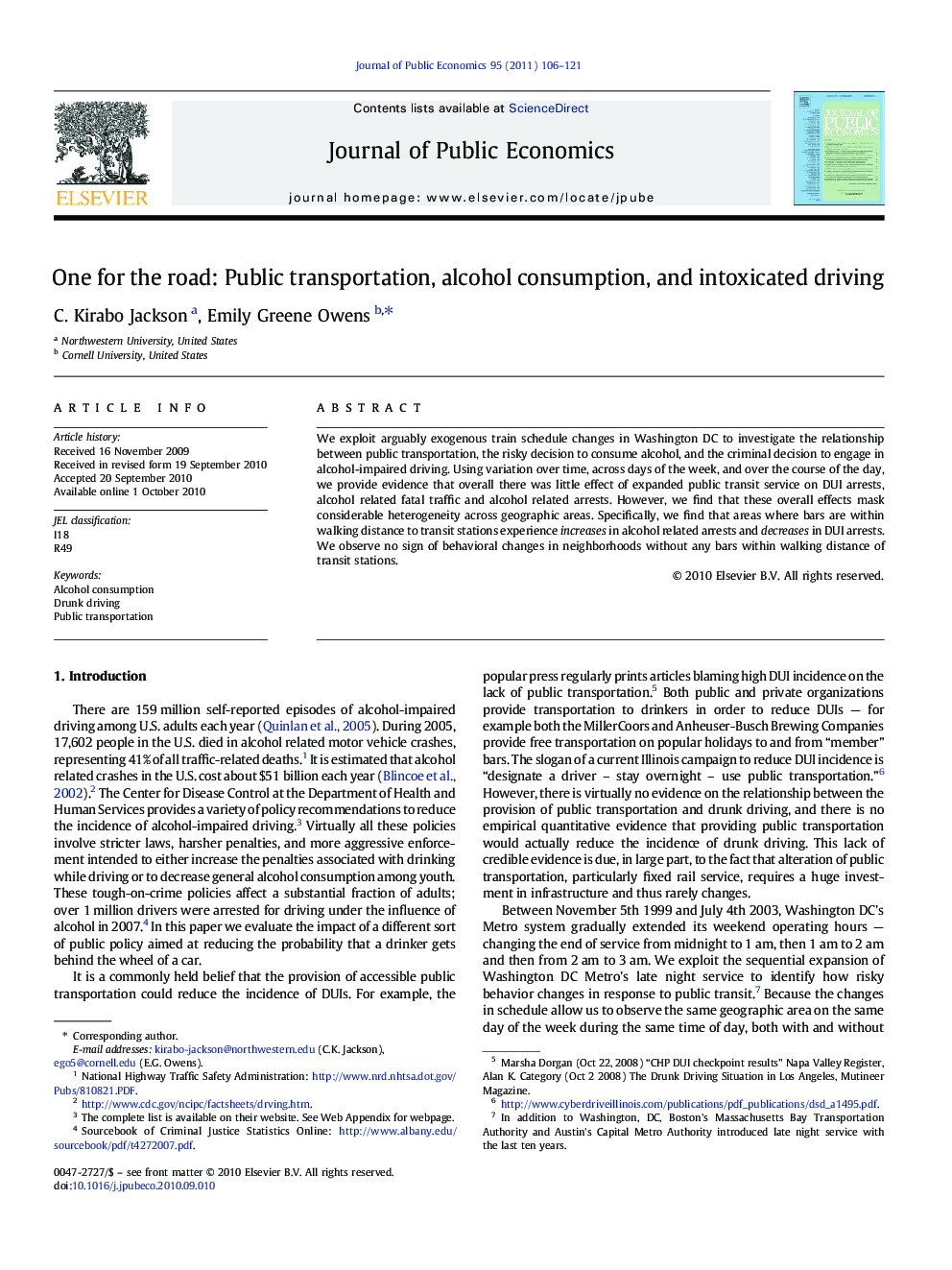| Article ID | Journal | Published Year | Pages | File Type |
|---|---|---|---|---|
| 968734 | Journal of Public Economics | 2011 | 16 Pages |
We exploit arguably exogenous train schedule changes in Washington DC to investigate the relationship between public transportation, the risky decision to consume alcohol, and the criminal decision to engage in alcohol-impaired driving. Using variation over time, across days of the week, and over the course of the day, we provide evidence that overall there was little effect of expanded public transit service on DUI arrests, alcohol related fatal traffic and alcohol related arrests. However, we find that these overall effects mask considerable heterogeneity across geographic areas. Specifically, we find that areas where bars are within walking distance to transit stations experience increases in alcohol related arrests and decreases in DUI arrests. We observe no sign of behavioral changes in neighborhoods without any bars within walking distance of transit stations.
Research Highlights►One of the major social costs of alcohol consumption is drunk driving. ►Late night public transportation provides drinkers with a safe way to get home. ►Late night transit reduces DUI arrests in areas where transit stops are near bars. ►Arrests for minor crimes rise in those areas, likely due to more late night activity. ►Late night transit may increase drinking, but that alcohol consumption is “safer”.
